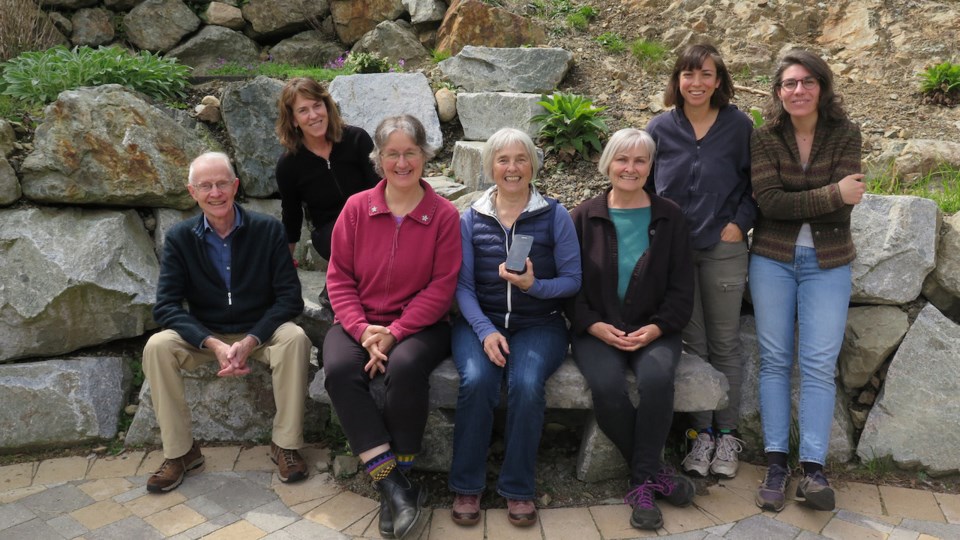We have booklets telling us how to prepare for sudden emergencies, like power outages and earthquakes, but what about a long, slow emergency like climate change?
What is our response to the threats that weather poses to our food supply? According to the 2018 Bowen Island Risk and Vulnerability Assessment, the General Store has about three days’ worth of food before shortages occur. Remember your frustration at not finding what you wanted at The Ruddy Potato after a holiday weekend? Where would you get your food if that inconvenience stretched into a week or longer?
Whether it is an untimely freeze that destroys a harvest of oranges in Florida, or widespread bee colony collapse that prevents the pollination of our favorite fruits and vegetables, we need to plan for such contingencies, according to members of Bowen Island Food Sovereignty (BIFS).
In January, BIFS teamed up with Julie Sage, a researcher and agrologist living on Bowen Island, to explore ideas for making Bowen Island’s food system more resilient in times of emergency. Recently, the group was notified that their first grant application was awarded. In May, BIFS will receive funding from the Knick Knack Nook’s Environmental Sustainability program to further its groundwork on a new initiative called “Toward a Resilient Food System for Bowen Island.”
To create a clearer picture of where we are now and what needs to be done, BIFS is reaching out to farmers, gardeners, businesses, and other community members. Bowen-specific information will be collected from in-person interviews, online surveys as well as government data and academic studies.
Many of these sources point to the need for more local food production and that will be a focus of BIFS’ research.
Most of the fruits and vegetables consumed in Canada come from somewhere else. Research by Kwantlen Polytechnical University found that in Southwest B.C., we only produce 40 per cent of what we eat, and that figure is projected to be drastically lower in coming years if we continue in a business-as-usual way.
As the initiative’s project lead, Julie is coordinating BIFS’ research into natural resources, land use, and food production on the island. Volunteers are assisting her with interviews and surveys to include as many people as possible.
One fertile area that they will be evaluating is on-island composting. The expense of trucking waste off island and then importing soil seems counter-intuitive and produces excess greenhouse gases (GHGs). BIFS is gathering information from a number of municipalities and facilities.
As Julie explains, “we want to measure how much ‘organic waste’ is exported every year and how many yards of soil are imported for island gardens and farm operations to see if we can make healthy soil on island.”
Using a collaborative approach, the initiative will seek out those familiar with Bowen’s rural heritage, as well as restaurateurs and everyone else involved in the local food chain. One opportunity for community participation is coming in early May, when the first of two stakeholders meetings will be convened.
At the same time, BIFS members are continuing their outreach and education efforts. Starting in May, look for Rabia Wilcox, Phil Gregory and Jackie Bradley’s weekly information table at the Farmers’ Market. And, on Sunday, July 28, BIFS and Bowen in Transition (BIT) will cosponsor a day-long introduction to permaculture.
“We all have a stake in building more self-reliance and resiliency where we live,” says Shasta Martinuk who is a member of BIT as well as BIFS. “Maybe this is obvious but it isn’t just the farmers, stores, and restaurants that are threatened by disruptions in our food system. “
As we know, living on an island compounds every challenge we might face. But, if our community makes growing food a priority, and respects and protects the natural resources used to produce that food, we could boost Bowen Island’s resilience.
For more information, please contact: [email protected].



